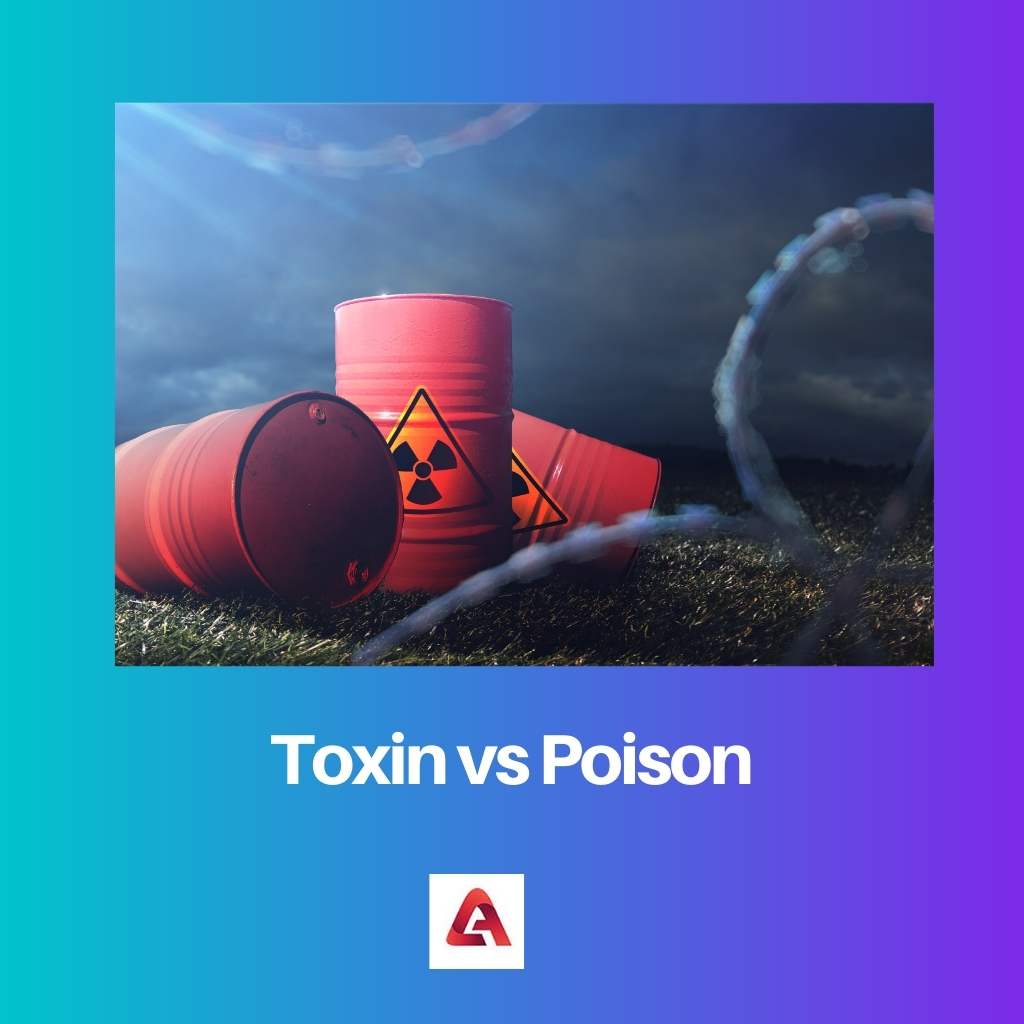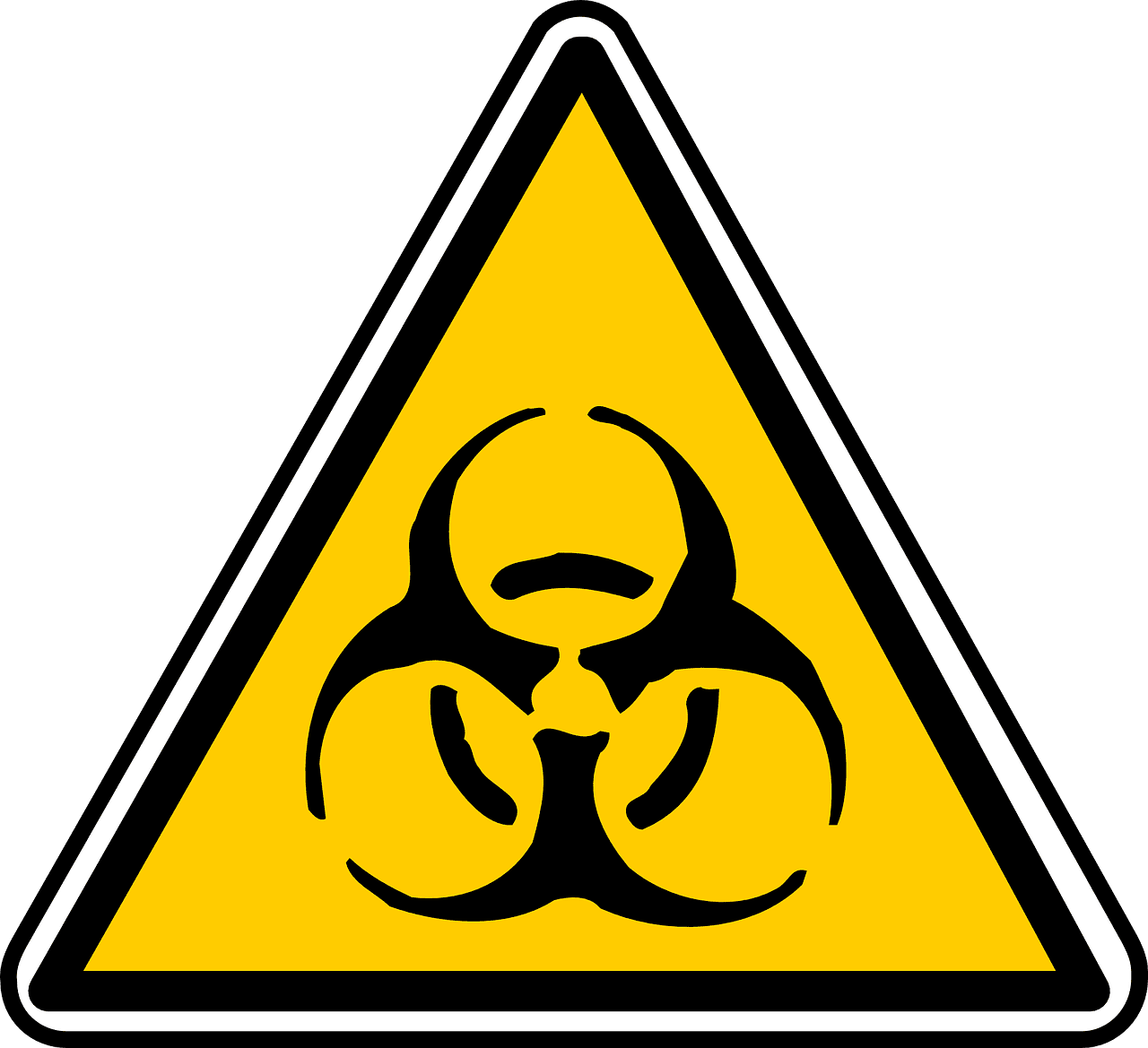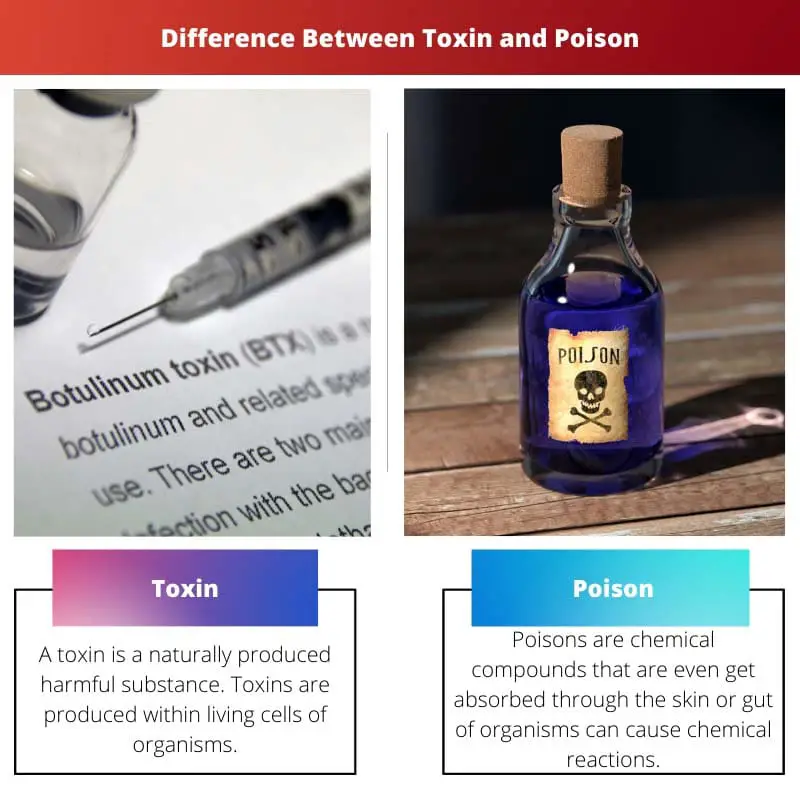Toxins and poisons are two words that automatically make everyone alert. Many of day to day objects or consumptions contain a very small amount of toxins or poisons in them.
While it may be very easy to confuse both terms with one another, Toxins and Poisons are very different from each other in terms of their origin or usage.
Key Takeaways
- Toxins are harmful substances produced by living organisms.
- Poisons cause harm or death when ingested, inhaled, or absorbed.
- All toxins are poisons, but not all poisons are toxins.
Toxin vs Poison
The difference between toxins and poison is that toxins are of natural origin. They are produced within the living bodies, but poison may be natural or even chemically synthesized. Toxins are produced in living bodies as a defence mechanism, like in a bee, the bee sting is the toxin which is their defence mechanism but poisons are used for cleaning purposes or for killing pests.

Toxins are harmful proteins that are naturally induced in living bodies. They are alternatively known as secondary metabolites, as they do not help in any growth or reproductive processes in living organisms.
The world’s most dangerous toxin is the toxin induced by pufferfish. The toxin found in pufferfish is known as Tetrodotoxin.
Poison is a chemically synthesized harmful solution. Poison can also be natural in origin.
The effects of poison can vary from short to long term and cause immediate death or slow poisoning, which can cause damage over a long period and then result in death.
Botulinum is one very powerful poison and results in failure of the nervous system causing death with extreme pain.
Comparison Table
| Parameters of Comparison | Toxin | Poison |
|---|---|---|
| Origin | Toxins are naturally induced. | Poisons can be naturally or chemically induced. |
| Production | Toxins are found in all living organisms, plants. | Poison is not necessarily found in all living organisms, some are found on some. |
| Usage | The work of toxins is being a defense mechanism of living beings. | Poison is used in some medicines and cleaning supplies. |
| Terminology | “Toxin” is derived from the word “toxic” which originated from the Greek language “toxikon pharmakon’ which means “Arrows of poison”. | The word originated from the Middle English language. It meant a harmful medicine that was derived from the French language. In french the term denoted “magic portion” from the word “Potio” in Latin which means drink to drink. |
| Effects on Mankind. | Toxins are not at all beneficial to man | Sometimes poison is beneficial to man. |
What is Toxin?
A toxin is a naturally produced harmful substance. Toxins are produced within living cells of organisms. The term toxin was first used by the chemist of Ornagics Ludwig Brieger in the year 1885.
The word “Toxin” is derived from the word “toxic”, which originated from the Greek language “toxikon pharmakon’ which means “Arrows of poison”.
Generally, toxins are small molecules of protein or peptide that have the ability to cause diseases when they come in contact with a living cell.
The power of toxins may vary depending on the kind of toxins. Some toxins have very minor effects, to much more severe effects to immediately causing death.
Toxins are naturally induced proteins, hence, chemically synthesized toxins aren’t considered toxins.
Although toxins are produced in living bodies, they play no role in the growth of other activities of the living body except being a mechanism for defence. That is why toxins are secondary metabolites.
Toxins are produced by plants, animals, and other organisms like viruses, fungi, bacteria, or protozoa. More or less, all living organisms produce toxins.
Even the human body secret toxins, which, although they are not a defence mechanism for humans, the toxins need to be eliminated from the body, and they can cause discomfort in one’s body.

What is Poison?
Poisons are chemical compounds that are even absorbed through the skin or gut of organisms and can cause chemical reactions. If injected in a large quantity in a living organism, they can hinder the DNA composition by causing a chemical reaction.
Poisons can even invade a living being through the contact of the skin and even the lungs.
The most interesting part of the poison is that some medications, when taken in excessive doses, can cause poisonous reactions.
There are also certain poisons that only act on certain groups. For example, pesticides are there to kill pests and other organisms in agriculture, but however, they do not necessarily kill humans.
The word originated from the Middle English language. It meant a harmful medicine that was derived from the French language, in french, the term denoted “magic portion” from the word “Potio” in Latin, which means drink to drink.
Although poisons have a nefarious reputation of being a weapon of assassination, they also poisons help in weed control, preservation of building materials, and also used in cleaning.
Poison can be corrosive, carcinogens, and harmful pollutants in nature. Poison can have a slow effect or can have an immediate reaction depending on the type of poison and the dose.

Main Differences Between Toxin and Poison
- Toxins are naturally induced protein compounds in the body of living beings, while poison can be naturally or chemically synthesized.
- The work of toxins in the body of living beings is to be used as a defence mechanism, but poison is used for various purposes like cleaning.
- Toxins are not at all beneficial to man, but there are some types of poison which is beneficial for man.
- Toxins are naturally present in all living beings, whereas for the poison, it is acquired.
- The toxin is a subset of poison, but poison is not at all a subset of toxin.




